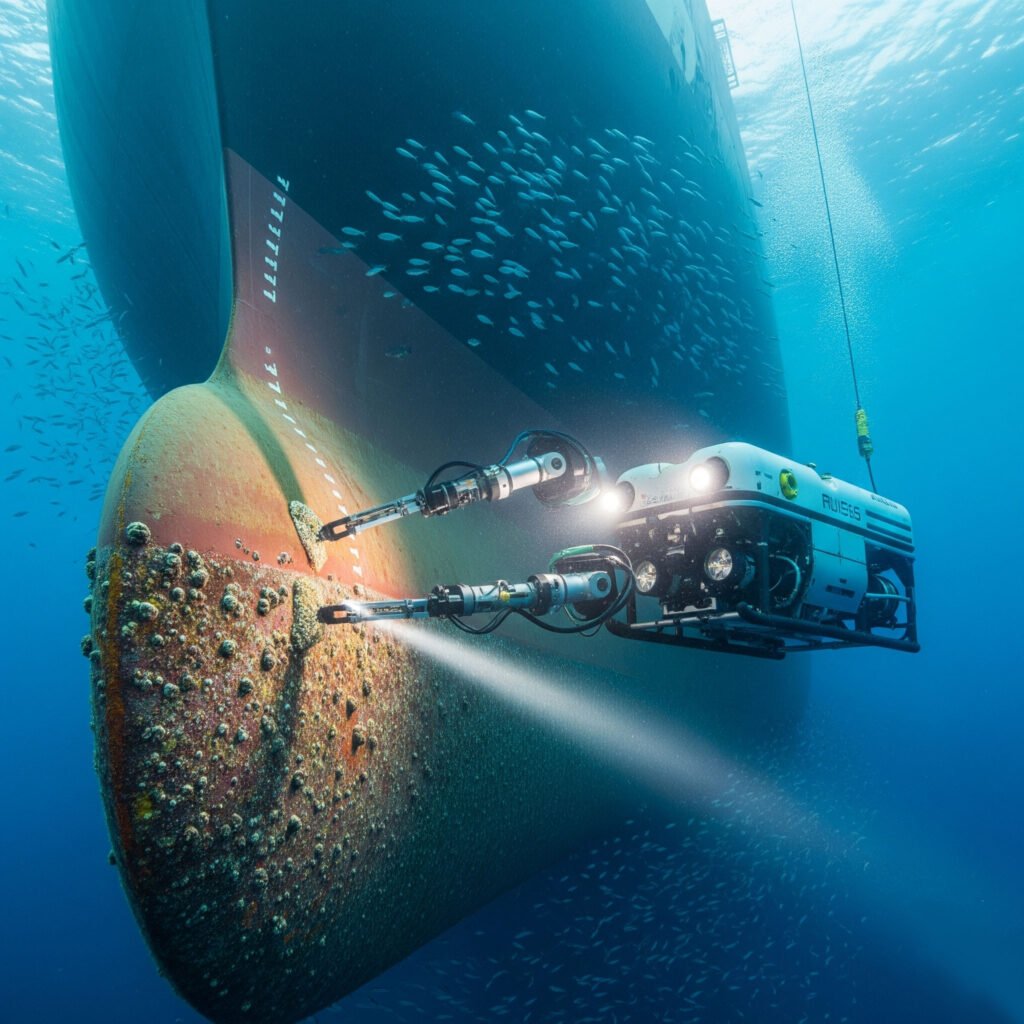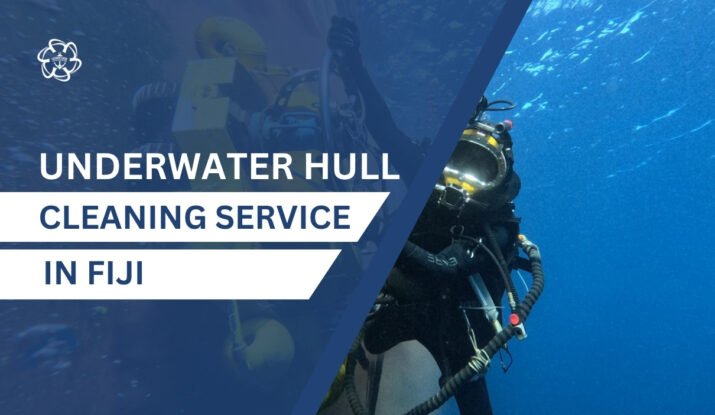Underwater Hull Cleaning in Fiji: Keeping your ship’s hull clean is a constant challenge, especially in tropical regions like Fiji, where warm waters accelerate biofouling. You’re not alone if you’ve noticed more drag, higher fuel bills, or increased drydocking time due to marine growth.
We understand how important it is to maintain efficiency, meet biosecurity regulations, and reduce operational costs. That’s why we’re here to show you how professional underwater hull cleaning services in Fiji, like those offered by trusted providers such as CleanShip, can dramatically improve your vessel’s performance and lifespan.
In this guide, we’ll walk you through the real benefits of hull cleaning, how it protects your ship and the environment, and what to look for in a reliable service provider operating in Fijian waters.
Why Hull Cleaning Matters in the South Pacific
Ships sailing in tropical regions like Fiji are particularly vulnerable to biofouling—the accumulation of marine life such as barnacles, seaweed, and algae on the hull. This build-up creates friction between the vessel and water, negatively impacting the ship’s performance in several ways:
- Increased drag, requiring more engine power and thus more fuel.
- Reduced speed, leading to schedule delays and inefficiency.
- Greater emissions, which can breach IMO (International Maritime Organization) environmental regulations.
- Potential spread of invasive species, a growing concern in marine conservation.
A clean hull ensures smoother navigation, reduces operational costs, and strengthens your ship’s compliance profile across jurisdictions.
How Hull Fouling Impacts Performance and Fuel Efficiency

1. Fuel Consumption and Drag
According to studies by the IMO, even a thin layer of slime (less than 0.5 mm thick) can increase fuel consumption by up to 20%. Heavy fouling, such as barnacle colonies, can push that figure beyond 40%. Hull cleaning and propeller polishing are therefore not optional, but essential.
2. Propeller Efficiency
A fouled propeller loses efficiency in thrust generation. Using 3M Marine Abrasive Discs, cleaning teams can polish the propeller to a Rubert Scale A/B finish, significantly improving water flow and reducing cavitation risk.
3. Engine Strain
More resistance in the water places added pressure on the engine and mechanical systems, increasing wear and shortening component lifespan. Regular hull maintenance reduces mechanical stress, allowing ships to maintain cruising speeds with less effort.
Environmental and Regulatory Compliance in Fiji
The Fijian Government and Ministry of Fisheries enforce strict biosecurity and marine environmental laws, particularly for foreign-flagged vessels entering ports such as Suva, Lautoka, and Savusavu.
Benefits of Compliance Through Hull Cleaning:
- Reduces the risk of invasive species transfer.
- Helps meet the IMO’s Biofouling Guidelines (MEPC.207(62)).
- Demonstrates a commitment to Fiji’s “Blue Economy” goals, focused on sustainable marine resource use.
- Minimizes fines or port delays caused by inspections or mandatory drydocking.
By choosing in-water hull cleaning services that use diver-friendly systems and eco-approved tools, vessel operators show leadership in sustainable maritime operations. Best Practices for Underwater Hull Cleaning in Fiji
To ensure effective results and protect both the vessel and marine environment, best practices include:
1. Pre-Cleaning Inspection
Certified divers carry out a full underwater hull survey, often using HD cameras or ROVs (remotely operated vehicles), to assess fouling type and severity.
2. Use of Non-Abrasive, Coating-Friendly Equipment
Rotary brush systems with adjustable pressure settings prevent damage to anti-fouling and non-ablative coatings.
3. Scheduled Cleaning Intervals
For tropical waters like Fiji’s, cleaning intervals typically range from 3 to 6 months, depending on vessel activity. This helps:
- Extend paint coating life from 2 to 7 years.
- Maintain clean rudders and thrusters.
- Prevent buildup that causes micro-pitting and corrosion.
Choosing a Qualified Hull Cleaning Provider in Fiji
When selecting a cleaning provider, shipowners should verify the following:
- Certifications: Look for ISO 9001, IMCA membership, or Class society approvals (DNV, Lloyd’s, BV).
- Technician Experience: Ask about diver qualifications, safety records, and prior client work.
- Service Range: Comprehensive providers offer not just hull cleaning but:
- Propeller polishing
- Hull inspections and reporting
- Anode inspection and replacement
- Technology Use: Providers like Triton Marine utilize real-time underwater video, automated brush heads, and eco-friendly cleaning discs.
Partnering with an experienced and well-equipped provider ensures cleaning is thorough, safe, and environmentally sound.
4. Debris Management
Professional teams capture and remove debris post-cleaning to prevent the release of biofouling material into marine habitats.
Conclusion: Maximizing Vessel Efficiency and Lifespan
In Fiji’s fast-growing maritime sector, underwater hull cleaning isn’t a luxury—it’s an operational necessity. Routine underwater cleaning:
✅ Increases speed and fuel efficiency
✅ Reduces emissions and supports green shipping
✅ Extends the lifespan of coatings and marine equipment
✅ Ensures full regulatory compliance in Fijian waters and beyond
Whether you’re running a commercial shipping line, a passenger ferry, or a private yacht, investing in professional hull cleaning saves money, time, and the planet.
FAQs:
Q1. Is underwater hull cleaning allowed in Fiji waters?
Yes, underwater hull cleaning is allowed in Fiji waters, but it must comply with regulations from Marine Service Providers and the Biosecurity Authority of Fiji under the Maritime Transport Act. Non-compliance may result in severe penalties, ensuring that all cleaning, including hull maintenance, is environmentally safe.
Q2. How often should hull cleaning be done for vessels in Fiji?
Hull cleaning frequency depends on vessel usage and cleaning needs. In the South Pacific, operators should clean the hull every six months to maintain performance and remove biofouling. Neglecting biofouling can reduce efficiency and increase fuel costs.
Q3. What safety measures are followed during underwater hull cleaning?
Safety is paramount in hull cleaning. Trained divers must avoid harmful substances, adhering to the Maritime Safety Authority of Fiji (MSAF) rules. These regulations prohibit jetting in certain areas and ensure constant supervision during underwater work, ensuring that hull cleaning in Fiji meets MSAF standards.
Q4. Can hull cleaning help prevent invasive marine species?
Yes, regular hull cleaning prevents invasive species’ spread, as Fiji’s Biosecurity Act mandates. The Biosecurity Authority of Fiji emphasizes the need for thorough scraping and cleaning to remove pollutants. This practice protects the environment and mitigates biofouling risks.
Q5. How do I choose a reliable underwater hull cleaning service in Fiji?
Choose marine service providers that demonstrate professionalism and adhere to important regulations. Ensure they meet high-quality standards and possess necessary documentation, such as BAF approval. Reliable companies like Triton Marine offer tailored solutions for optimal performance while ensuring compliance.


